Ways To Keep Mentally Fit
 Even though we focus heavily on physical fitness, staying mentally fit is just as important. California is a laid-back state, but there’s still a lot of stress that affects you both physically and mentally. Poor mental fitness makes every day a chore. It makes the thought of exercising and eating healthy seem like a chore. Good mental fitness can also help you muscle through the toughest exercises. It’s so important we had a blog last August about exercises that can help. Here are some other ideas to aid in improving mental fitness.
Even though we focus heavily on physical fitness, staying mentally fit is just as important. California is a laid-back state, but there’s still a lot of stress that affects you both physically and mentally. Poor mental fitness makes every day a chore. It makes the thought of exercising and eating healthy seem like a chore. Good mental fitness can also help you muscle through the toughest exercises. It’s so important we had a blog last August about exercises that can help. Here are some other ideas to aid in improving mental fitness.
Learn to deal with stress before it becomes too stressful.
Positive thinking has gotten a bad rap. Most people think it’s about wishing their way to wealth and success, when in reality it’s more about finding something good that you can work with in every situation. If you’re out of a job, wishing won’t employ you, but focusing on the skills you have can help you find a job. You may have to dust them off and bring them up-to-date but that helps reduce stress, too. It puts you back in control of your destiny.
Eating healthier can help improve mental fitness.
Eating healthier improves the gut’s microbiome. These microscopic colonies can be beneficial or harmful. Beneficial microbes communicate with the brain by activating neural pathways. They can help improve your mood and reduce inflammation that can lead to depression and anxiety. Eating more anti-inflammatory whole foods and foods high in fiber, while cutting out food causing inflammation, such as those with added sugar, can help. Studies show a diet high in sugar negatively affects mental health. Beneficial microbes also produce short-chain fatty acids that help regulate the nervous system.
Get adequate sleep.
When you have mental stress, it can cause sleepless nights. In turn, those sleepless nights can lead to more mental stress. It’s a vicious cycle. Lack of sleep can create anxiety and depression. It can lead to mood and behavioral changes. When you don’t get enough sleep, you tend to be irritable. It can cause anxiety, anger, aggression, and depression. It affects mental fitness in other ways, like interaction with others, hyperactivity, and emotional outbursts.
- Your mental fitness is vital for your physical fitness. Left unchecked, stressing out can lead to high blood pressure, hormonal imbalance, premature aging, and a shorter life span.
- For a good overview of exercises to help improve mental fitness, check out the blog from August of 2023 called Workouts for Better Mental Health. Just increasing how much you walk can help lift depression and anxiety.
- Get out in the sun and nature. Walking barefoot on grass is used by mental health specialists to help reduce stress, depression, and anxiety. It’s called grounding or earthing. Sunlight also increases the release of serotonin, which helps reduce depression.
- Staying active, social, and laughing is good for mental health. If you aren’t a social butterfly, get a pet. Studies show having good friends, an active social life, or even a loving furry companion improves mental fitness.
For more information, contact us today at Next Level Fitness



 If you’re like many people in Irvine, CA, you’re constantly looking for ways to boost immunity. Preventing illness is far better than trying to cure it. Improving your immune system is the best way to do that. You can stay healthier by focusing on good immune health. Your immune system is your body’s first line of defense to prevent invaders from entering. If they do manage to enter the body, the immune system also weakens and destroys them.
If you’re like many people in Irvine, CA, you’re constantly looking for ways to boost immunity. Preventing illness is far better than trying to cure it. Improving your immune system is the best way to do that. You can stay healthier by focusing on good immune health. Your immune system is your body’s first line of defense to prevent invaders from entering. If they do manage to enter the body, the immune system also weakens and destroys them.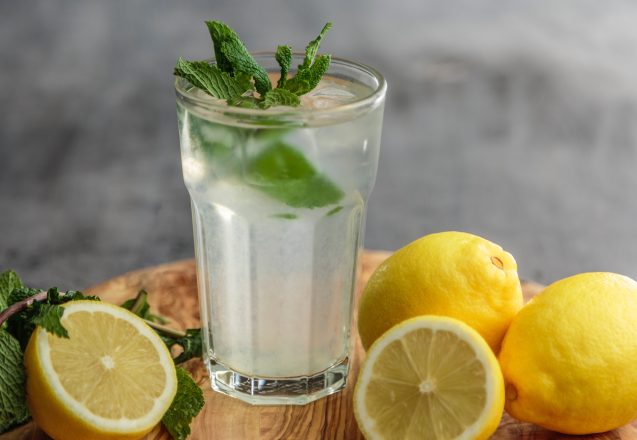
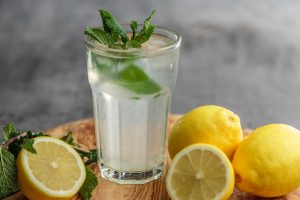 The body requires the amount of water necessary varies by weight, age, and other factors. How much water do you need to stay healthy? While your size plays an important role, your activity level also affects your intake. If you’re out in the hot sun, you’ll need more water than if you’re sitting in an air-conditioned room. How do you decide how much you need? You have to start with a baseline.
The body requires the amount of water necessary varies by weight, age, and other factors. How much water do you need to stay healthy? While your size plays an important role, your activity level also affects your intake. If you’re out in the hot sun, you’ll need more water than if you’re sitting in an air-conditioned room. How do you decide how much you need? You have to start with a baseline.
 Probably one of the things for good health that people might think is easy, may be one of the hardest things to do. It’s getting adequate quality sleep. It’s even worse in today’s society, where lack of sleep is almost a virtue. It’s all about the quality of your sleep and how much your body requires. Everyone is different. Some people thrive on less sleep than others do. It doesn’t make either one good, bad, lazy, or ambitious. It’s just the difference in their bodies. Most adults require 7 to 9 hours of sleep, but a small minority require 6 or less, with a similar group requiring 10 or more hours.
Probably one of the things for good health that people might think is easy, may be one of the hardest things to do. It’s getting adequate quality sleep. It’s even worse in today’s society, where lack of sleep is almost a virtue. It’s all about the quality of your sleep and how much your body requires. Everyone is different. Some people thrive on less sleep than others do. It doesn’t make either one good, bad, lazy, or ambitious. It’s just the difference in their bodies. Most adults require 7 to 9 hours of sleep, but a small minority require 6 or less, with a similar group requiring 10 or more hours.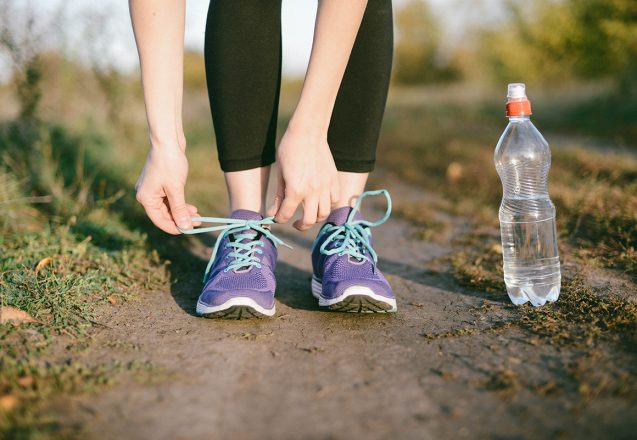
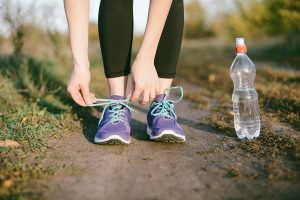 Working out at Next Level Fitness in Irvine, CA, provides a well-rounded program and is one way to improve your health. Some people include 10,000 steps a day or use that technique as their only fitness workout. Is it beneficial? Why are 10,000 steps best and not 5,000 or 15,000? How did we arrive at that number and does it work or do you need more than just walking? There’s a lot of confusion surrounding the 10,000 steps recommendation.
Working out at Next Level Fitness in Irvine, CA, provides a well-rounded program and is one way to improve your health. Some people include 10,000 steps a day or use that technique as their only fitness workout. Is it beneficial? Why are 10,000 steps best and not 5,000 or 15,000? How did we arrive at that number and does it work or do you need more than just walking? There’s a lot of confusion surrounding the 10,000 steps recommendation.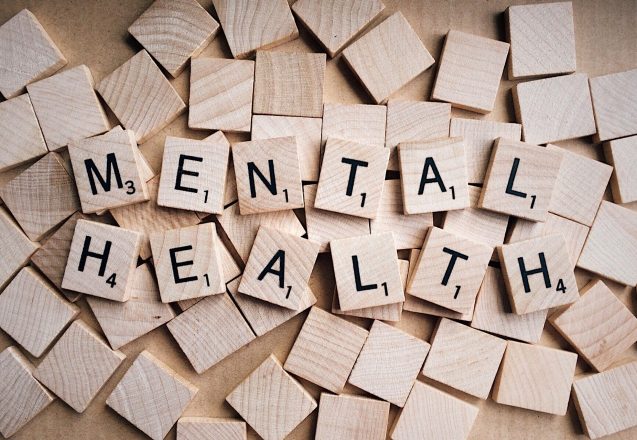
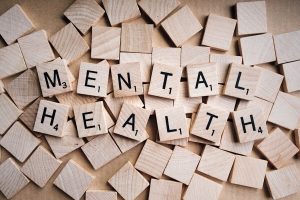 Workouts can improve your physical health, but now there’s evidence it does the same for mental health. It increases circulation, which sends oxygen and nutrient-rich blood to the entire body, including the brain. It also affects the gut microbiome that influences your mood. They increase or diminish neurotransmitters and improve your feeling of well-being and happiness. The gut, not the brain, produces most of the serotonin in your body, so improving the microbe balance can boost your mood.
Workouts can improve your physical health, but now there’s evidence it does the same for mental health. It increases circulation, which sends oxygen and nutrient-rich blood to the entire body, including the brain. It also affects the gut microbiome that influences your mood. They increase or diminish neurotransmitters and improve your feeling of well-being and happiness. The gut, not the brain, produces most of the serotonin in your body, so improving the microbe balance can boost your mood.
 If you have a desire for a specific food or type of food and nothing else will do, you have cravings. While some cravings are purely physical. If you’re craving watermelon or a juicy fruit, you might need hydration. Some people also have healthy cravings that are the body telling you that you need certain nutrients. Most cravings, however, are strictly emotional. Cravings are part of the reward system that is located in several areas of the brain. It’s more than just being hungry. The part of the brain that tells you it’s hungry or thirsty is located in the hypothalamus at the base of the brain, while the reward system is throughout the center of the brain. If you eat something sweet, it makes you feel good because it triggered the reward system.
If you have a desire for a specific food or type of food and nothing else will do, you have cravings. While some cravings are purely physical. If you’re craving watermelon or a juicy fruit, you might need hydration. Some people also have healthy cravings that are the body telling you that you need certain nutrients. Most cravings, however, are strictly emotional. Cravings are part of the reward system that is located in several areas of the brain. It’s more than just being hungry. The part of the brain that tells you it’s hungry or thirsty is located in the hypothalamus at the base of the brain, while the reward system is throughout the center of the brain. If you eat something sweet, it makes you feel good because it triggered the reward system.
 You’ll get more than just strength training or endurance training at Next Level Fitness in Irvine, CA/ You’ll also work on exercises to increase flexibility. Flexibility workouts help improve your range of motion and can prevent injuries. What are the best flexibility exercises? They’re stretches. Stretching boosts blood flow to the muscles. That can also help increase their size and strength. It also helps improve posture. Here are a few exercises that help.
You’ll get more than just strength training or endurance training at Next Level Fitness in Irvine, CA/ You’ll also work on exercises to increase flexibility. Flexibility workouts help improve your range of motion and can prevent injuries. What are the best flexibility exercises? They’re stretches. Stretching boosts blood flow to the muscles. That can also help increase their size and strength. It also helps improve posture. Here are a few exercises that help.
 If you feel like every workout is punishment and eating healthy is the price you pay for overindulging, you’ll spend every minute getting fit miserable and probably won’t stick with it long. Celebrate every movement, appreciate how good you feel, and reward yourself when you’ve achieved a goal. The reward can be for reaching a goal, completing a tough workout, or sticking with a plan of healthy eating for a month. The celebration can be for accomplishing something hard for you to do, even if it’s easy for everyone else.
If you feel like every workout is punishment and eating healthy is the price you pay for overindulging, you’ll spend every minute getting fit miserable and probably won’t stick with it long. Celebrate every movement, appreciate how good you feel, and reward yourself when you’ve achieved a goal. The reward can be for reaching a goal, completing a tough workout, or sticking with a plan of healthy eating for a month. The celebration can be for accomplishing something hard for you to do, even if it’s easy for everyone else.
 If you’ve made goals before and never achieved them, don’t give up. Here are some simple ways to help you reach your goals. The first is to write down your goals. Do you want to have more energy, lose weight, or just feel better? Decide how you’re going to do it. Will you change your diet? Get more exercise? Or is doing a combination of the two your road to victory? Having a plan of action is important.
If you’ve made goals before and never achieved them, don’t give up. Here are some simple ways to help you reach your goals. The first is to write down your goals. Do you want to have more energy, lose weight, or just feel better? Decide how you’re going to do it. Will you change your diet? Get more exercise? Or is doing a combination of the two your road to victory? Having a plan of action is important.